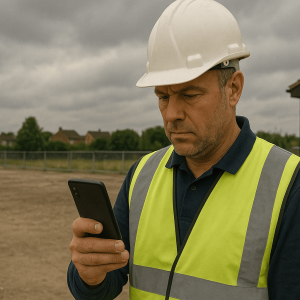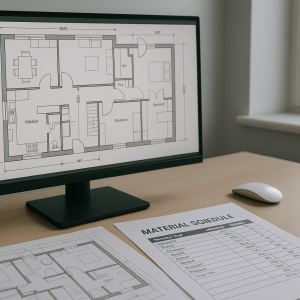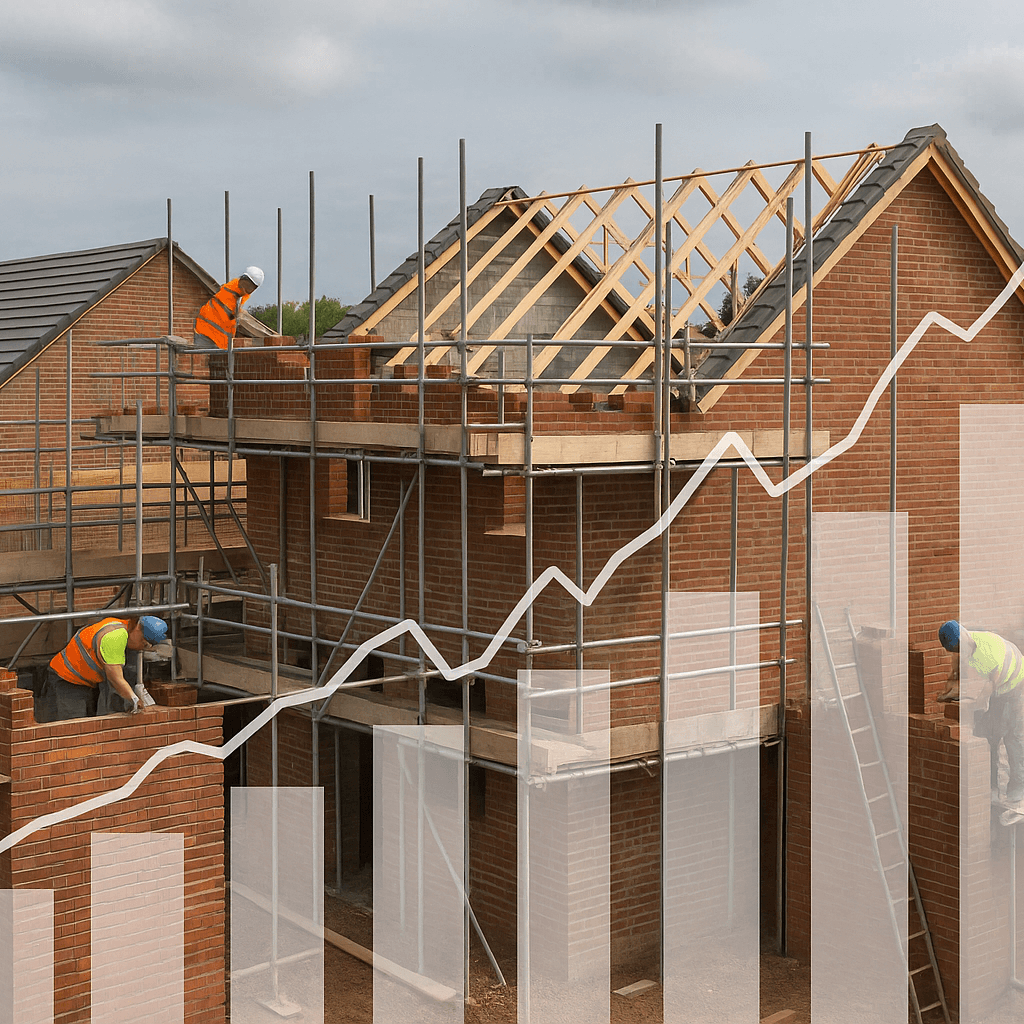In the labyrinth of the UK construction industry, where every penny counts and the margin for error is slim, building estimating services emerge not just as a tool, but as the unseen backbone supporting builders and contractors. It’s high time we shed some light on this crucial aspect, often overshadowed by the more glamorous facets of construction. Let’s dive into the world of building estimating services, dissecting their benefits, challenges, and their indispensable role in the UK’s construction landscape.
The Indispensable Role of Building Estimating Services
At first glance, building estimating might seem like just another step in the pre-construction phase. However, delve a bit deeper, and you’ll find it’s the cornerstone that ensures a project’s financial viability and success. In the UK, where every construction project is a ballet of budgeting precision, the role of estimating services cannot be overstated.
Ensuring Financial Feasibility
Before a single brick is laid, building estimating services provide a crystal-clear picture of the project’s financial landscape. They dissect every aspect of the construction process, from material costs to labour charges, ensuring that the budget is not just a ballpark figure but a precise financial blueprint. This meticulous financial planning is what separates successful projects from financial fiascos.
In the UK’s ever-evolving construction market, where costs can fluctuate wildly, the accuracy provided by professional estimating services is invaluable. It allows builders to set realistic budgets, secure appropriate funding, and avoid the dreaded cost overruns that can cripple a project.
Streamlining Project Management
But it’s not just about the numbers. Building estimating services also streamline the entire project management process. By providing a detailed breakdown of every cost component, they enable project managers to allocate resources more efficiently, identify potential savings, and make informed decisions that keep the project on track and within budget.
This level of detail and organization is particularly crucial in the UK, where construction projects often involve a complex web of subcontractors, suppliers, and regulatory requirements. A comprehensive estimate acts as a roadmap, guiding project managers through the construction maze and ensuring that every decision is grounded in solid financial reasoning.
Challenges Facing Building Estimating Services
Despite their critical role, building estimating services face their own set of challenges. The dynamic nature of the UK construction industry, with its ever-changing regulations, materials costs, and labour rates, means that estimators must be constantly on their toes, adapting their calculations to reflect the latest data.
Keeping Up with the Market
The construction market is notoriously volatile, with prices for materials and labour fluctuating in response to global economic trends, local demand, and even the weather. For estimating services, staying ahead of these changes is a constant battle, requiring access to the latest market data and a deep understanding of the industry’s intricacies.
This challenge is compounded in the UK by the unique characteristics of its construction market, including strict building regulations, a diverse range of construction materials, and a skilled but often scarce labour force. Estimators must navigate these complexities, ensuring their calculations are not only accurate but also compliant with all relevant standards and regulations.
Adapting to Technological Advances
Technology is another double-edged sword for building estimating services. On one hand, it offers powerful tools that can enhance accuracy and efficiency, from sophisticated software that automates calculations to databases that provide real-time pricing information. On the other hand, keeping pace with technological advances requires constant learning and investment, posing a challenge for smaller estimating firms.
In the UK, where the construction industry is increasingly embracing digital solutions, this challenge is particularly acute. Estimating services must not only master the latest technologies but also integrate them seamlessly into their existing processes, ensuring they can provide the most accurate and up-to-date estimates possible.
The Impact of Sustainability on Building Estimating Services
With the growing emphasis on sustainability in the construction industry, building estimating services are facing new challenges and opportunities. Sustainable construction practices, such as using eco-friendly materials and implementing energy-efficient designs, are becoming more prevalent.
Estimators now need to factor in the costs associated with sustainable building practices, such as sourcing environmentally friendly materials and implementing green technologies. This adds a layer of complexity to their calculations but also opens up new avenues for innovation and differentiation in the market.
Integrating Sustainability into Estimates
Estimators must now consider not only the immediate costs of construction but also the long-term environmental impact and operational savings associated with sustainable practices. This requires a deep understanding of green building standards and regulations, as well as access to data on the lifecycle costs of sustainable materials and technologies.
By integrating sustainability into their estimates, building estimating services can help drive the adoption of green building practices in the UK construction industry, contributing to a more environmentally conscious and resilient built environment.
The Role of Building Information Modeling (BIM) in Estimating
Building Information Modeling (BIM) is revolutionizing the way construction projects are planned, designed, and executed. Estimators are increasingly leveraging BIM technology to create more accurate and detailed estimates, improving the overall efficiency and effectiveness of the estimating process.
By working with BIM models, estimators can extract precise quantities of materials, analyze construction sequences, and identify potential clashes or errors in the design phase. This level of detail not only enhances the accuracy of estimates but also helps streamline the entire construction process, reducing waste and rework.
Collaborative Workflows with BIM
One of the key advantages of using BIM in estimating is the ability to collaborate seamlessly with architects, engineers, and other project stakeholders. Estimators can access a shared digital model that provides real-time updates and insights, fostering better communication and coordination throughout the project lifecycle.
Furthermore, BIM allows estimators to visualize the project in 3D, enabling them to identify potential cost-saving opportunities and optimize the use of resources. This holistic approach to estimating not only improves accuracy but also enhances the overall quality and efficiency of construction projects.
Future Trends in Building Estimating Services
Looking ahead, the future of building estimating services is poised for further evolution and innovation. Emerging trends in technology, sustainability, and project delivery are reshaping the landscape of construction estimating, presenting both challenges and opportunities for estimators.
Artificial Intelligence and Machine Learning
Artificial Intelligence (AI) and Machine Learning (ML) are increasingly being integrated into estimating software, enabling estimators to automate repetitive tasks, analyze vast amounts of data, and generate more accurate predictions. These technologies have the potential to revolutionize the estimating process, making it faster, more precise, and less prone to human error.
By harnessing the power of AI and ML, building estimating services can enhance their capabilities, improve decision-making, and adapt to the dynamic nature of the construction industry. Estimators who embrace these technologies will be better equipped to meet the evolving demands of clients and stakeholders, setting new standards for accuracy and efficiency in estimating.
Virtual and Augmented Reality
Virtual Reality (VR) and Augmented Reality (AR) are also making inroads into the field of building estimating. Estimators can now visualize construction projects in immersive 3D environments, allowing them to explore different design options, identify potential issues, and communicate more effectively with clients and project teams.
These technologies not only enhance the estimating process but also improve collaboration, reduce errors, and enhance the overall project experience. By incorporating VR and AR into their workflows, building estimating services can offer clients a more interactive and engaging way to experience and understand their projects, leading to greater satisfaction and project success.
In conclusion, building estimating services play a vital role in the UK construction industry, providing the financial backbone that supports successful project delivery. By navigating challenges, embracing new technologies, and adapting to changing market dynamics, estimators are driving efficiency, innovation, and sustainability in construction projects. As the industry continues to evolve, the role of estimating services will only become more indispensable, shaping the future of construction in the UK.
FAQs: Unraveling the Mysteries of Building Estimating Services
Building estimating services might seem straightforward, but they are surrounded by questions and misconceptions. Let’s tackle some of the most common queries.
How do building estimating services benefit small construction firms?
For small firms, building estimating services level the playing field, providing access to the same level of expertise and accuracy as larger companies. This can be a game-changer, enabling them to compete for bigger projects and manage their budgets more effectively.
Can building estimating services help with regulatory compliance?
Absolutely. Professional estimators are well-versed in the UK’s complex building regulations and can ensure that estimates are not just accurate but also fully compliant, reducing the risk of costly delays and legal issues.
Are building estimating services worth the investment?
Without a doubt. While there is an upfront cost, the long-term savings in terms of avoided cost overruns and more efficient project management can far outweigh the initial investment, making building estimating services a wise choice for any construction project.
Recognizing the pivotal role of building estimating services in the UK construction industry, it’s clear that having a reliable partner like Cost Estimator can make all the difference. With their expertise in providing precise cost estimates and their commitment to bridging the gap between your project’s conception and its financial reality, Cost Estimator stands ready to guide you through every step of your construction journey. Whether you’re a seasoned industry professional or taking on a building venture for the first time, their comprehensive cost management services, powered by advanced software and deep market knowledge, are tailored to ensure your project stays on track and within budget. Don’t leave your construction project to chance. Order an Estimate Today and take the first step towards a well-informed and financially secure building experience.











